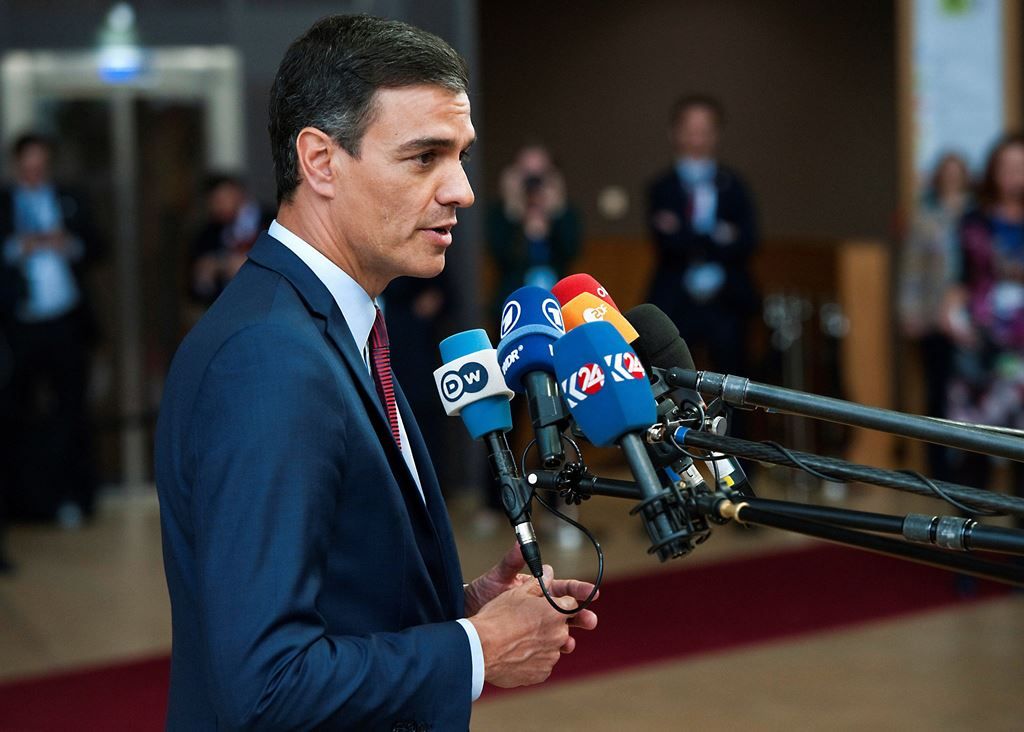The Prospects of a New Socialist Spanish Government

Election Results
Early parliamentary elections took place on 28 April and were forced by the rejection of the budget law for 2019 by MPs of the centre-right Popular Party (PP), Ciudadanos, and Catalonian separatists. PSOE won those elections with 29% of the votes, PP received 17%, Ciudadanos 16%, UP 14%, and the newest party in parliament, the conservative Vox, took 10%. Moreover, eight regional committees introduced to Congress 38 MPs, 26 of them Catalonian and Basque separatists. Contrary to the opposition’s expectations, the results strengthened Prime Minister Pedro Sánchez’s position by increasing the number of PSOE MPs from 85 to 123. That gave them the chance to form the government independent of separatist support, but because the party needs MP support from various other parties, the new government probably won’t be established until July.
The European elections and the elections to the parliaments of 12 regional Autonomous Communities and 52 municipal areas took place on 26 May. The results confirmed the Socialists’ domination and the PP’s position as the main opposition force. In the European elections, PSOE received 33% of the votes, PP 20%, Ciudadanos 12%, UP 10%, and Vox 6%. Almost 13% of the electorate chose regional committee candidates—10% voted for separatists associated with the committees Republics Now! and Together for Catalonia. Their MEPs will be, for example, the ex-leaders of the Catalonian regional government (the Generalitat) responsible for the organisation of the independence referendum in 2017 that Spain declared was illegal: Carles Puigdemont and Oriol Junqueras. The Socialists also won in the majority of the Autonomous Communities and municipal areas. The share of influence in local and regional authorities will be an important issue in the negotiations on support for the Sánchez government by the regional parties UP and Ciudadanos. A PSOE-Ciudadanos coalition is possible in five Autonomous Communities and 22 municipal areas. PSOE can also govern in five Autonomous Communities and 16 municipal areas with UP and/or regional parties that have members in Congress.
The Creation of the Government and Possible Coalitions
The establishment of a government requires an absolute majority of 176 votes in Congress on the first vote or a simple majority (more “for” than “against”) in the next vote. PSOE must either gain the support of 53 MPs from other parties or persuade 105 MPs to abstain. Certainly, the 24 VOX MPs will be against the establishment of a Socialist government.
Sánchez wants to maintain his minority government, so he is willing to negotiate support with the leaders of PP, Ciudadanos, and UP. PP doesn’t want to support the government because of ideological differences. Ciudadanos also refuses, but they offer the Socialists cooperation to establish a consensual pact on education, migration, depopulation, fighting terrorism, and Catalonian separatism. UP’s conditions its support on creating a coalition with PSOE. The party doesn’t want to lose voters to the Socialists without obtaining any benefits. However, if all PP, Ciudadanos, and Vox MPs vote against the government, Sánchez will have to gain support not only from UP but also from 12 other MPs from the regional parties or persuade 24 of them to abstain. The Catalonian separatists won’t help him either. They didn’t even want to collaborate on the election of speakers to chambers of parliament, but the suspension of three Catalonian MPs—in custody over the 2017 referendum—could facilitate the establishment of a government.
The Next Government’s European Policy
The crucial elements of Spain’s European policy will remain coherent with PSOE’s programme. It is based on close cooperation with France and Germany, the abolition of the unanimity rule in EU foreign policy, Dublin Regulation reform, strengthening Frontex, and the establishment of a eurozone budget and finance minister. Other key proposals include the introduction of European unemployment insurance, a common system of protecting bank deposits, tax harmonisation within the EU, and the creation of a digital tax and European minimum salary. PSOE also proposes the creation of a European ecological transformation fund, de-carbonisation of all EU economies by 2050, and maintenance of the high inputs in the common agriculture and cohesion policies. Spain will also support the new formula for the distribution of funds presented by the European Commission (EC). It also would like to add measures related to the depopulation of regions. Sánchez wants to be the informal leader of the European social democrats. His main ally, French President Emmanuel Macron, has similar ambitions in the liberal camp. They met on 27 May in Paris to create a common strategy for EU executive staffing negotiations. The Spanish government will fight to make Foreign Minister Josep Borell the EU high representative for foreign and security policy or put Nadia Calviño in one of the high economic positions.
The establishment of a minority government with support from UP on some votes and from Ciudadanos on others could give Sánchez some leeway in his foreign and domestic policies. If a leftist coalition arises, UP would seek to replace NATO with a European defence force, veto the EU sanctions on Russia, and liberalise migration policy. However, the party concentrates more on social and economic issues, so foreign policy should remain in the hands of PSOE. An increase in state expenditures may create some arguments between Spain and the EC but there won’t be open conflict similar to that over the Italian budget for 2019.
A PSOE-Ciudadanos government would continue Spain’s current European policy. The only change may be an end to pro-migrant rhetoric and the presentation of real government activity in this area. Both parties have similar European programmes and they both cooperate with Macron.
Prospects
The most probable scenario for a new Spanish government is the PSOE-UP coalition supported by regional party MPs minus the separatists. The establishment of a PSOE minority government, either thanks to votes from UP and regional parties or by the abstention of some PP and Ciudadanos MPs is also probable. Being in opposition to the weak leftist government may be more favourable for centre-right parties than forcing the dissolution of parliament. The case of the rejected 2019 budget shows that in another instance of early elections, PP and Ciudadanos would not win more votes. The creation of a PSOECiudadanos government will be possible if both parties agree to also co-govern on the regional and local levels.
The Polish and Spanish positions on climate policy, migration, economic integration, the criteria of distribution of EU funds, and dissolution of unanimity rules in foreign policy will remain contradictory. Both countries support the introduction of a digital tax and maintenance of high inputs in the common agriculture and cohesion policies. The more predictable the Spanish government is, the easier it will be for the Polish government to make compromises on conflicting matters and cooperate in common interests. For this reason, the best scenario for Poland would be a PSOE-Ciudadanos coalition while the worst would be a government consisting of PSOE with the pro-Russian, anti-American UP. An in-between solution would be a PSOE minority government supported by UP and regional parties.


